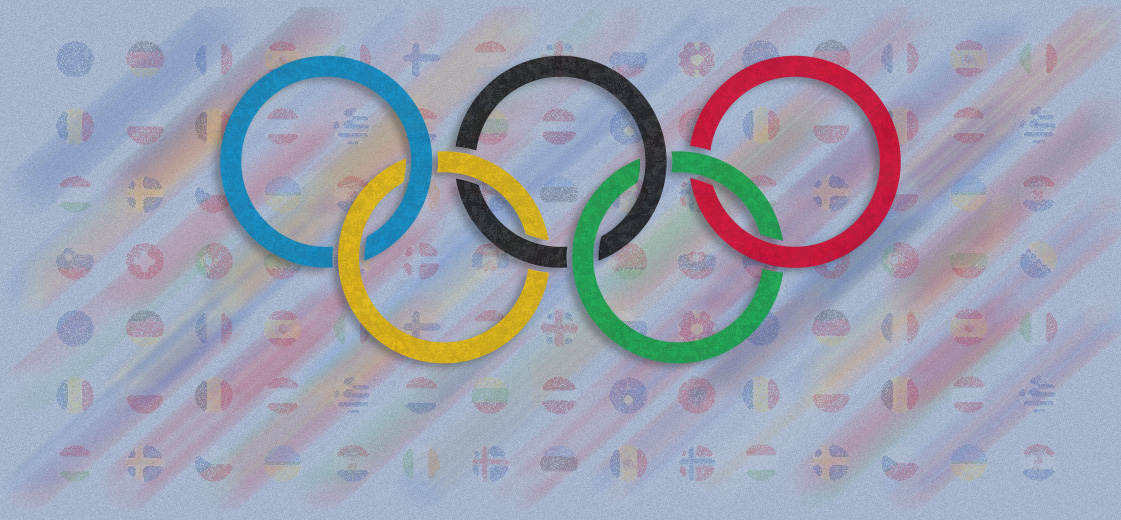
An Olympian transfer market
At least 25 athletes representing European countries at the Paris Olympics have been granted citizenship through expedited processes based on sporting merit.
Sometimes countries sign on new citizens as if the countries were a sports club in need of foreign athletes. In most cases, these are people with a strong connection to the country, who have been playing and training there for many years, perhaps even enough time that they could have obtained nationality through the ordinary route, by residence. That was the case for track athlete Majida Maayouf, who was born in Morocco and has lived in Spain for 13 years. She obtained Spanish nationality in June 2023 through a letter of naturalisation.
Other times, there is no previous relationship with the country, such as in the case of Megan Gustafson, whom Spain naturalised at the same time as Maayouf. Gustafson, a professional basketball player from Wisconsin, had never set foot in Spain before. The Spanish Basketball Federation requested her naturalisation, Marca reports. Something similar happened with Lorenzo Brown, whom Spain naturalised so he could represent it at Eurobasket 2022 despite the fact that he had never played here. Brown is playing for Spain’s men’s basketball team at this summer’s Olympic Games.
Most European countries have legislation providing pathways for their governments to grant nationality by decree to people for achievements in sport, culture or science, or because it is in the country’s interest. The academic project Globalcit compiles such naturalisation laws and regulations, among others, and Civio and European Data Journalism Network partners recently published a journalistic investigation of their impact across Europe. These express naturalisations are direct and depend only on the arbitrary decisions of the government in power. Above all, they are quick, especially compared to conventional residency requirements to obtain nationality, which range up to 10 years in Spain, Austria and Italy. Such official residency requirements are just a minimum: normal applicants must add the time it takes sluggish public administrations to handle their applications. We found few administrations complete naturalisations within official time limits: some have taken more than five years in Spain and up to six years in Greece.
At least 25 athletes will compete at the Paris Games after being granted citizenship by decree of a European country. This is the case of Ekaterina Antropova, a Russian volleyball player, whom Italy naturalised in August 2023. Antropova arrived as a minor in the country in 2018 with a residence permit and has been part of the Italian volleyball federation since. Another newly Italian Olympian this year is marathon runner Sofiia Yaremchuk, of Ukrainian origin, who obtained Italian citizenship due to sporting merit in 2020.
Andy Díaz, of Cuban origin, will also play for Italy. Italy naturalised him at the beginning of 2023 “in consideration of the activation of the procedure by the president of the Italian Olympic Committee” for the “excellent results achieved in his sporting discipline”, according to a communique from the country’s Council of Ministers. It is a similar story to that of another Cuban-origin athlete, Jordan Díaz, a naturalised Spaniard. Díaz took advantage of a sporting event held in Castellón to leave the Cuban team and settle in Spain. In just eight months he obtained a Spanish passport. Boxer Enmanuel Reyes Pla left Cuba in 2019 to try to join part of his family in A Coruña, Spain. He travelled to Russia, where he was trapped for half a year, and then went to Austria, where he requested asylum and was admitted to a refugee camp, Relevo reports. After spending a month in a German prison, he managed to reach Spain. There, in January 2020, the Spanish government naturalised him by decree. Other asylum seekers, on the other hand, must wait five years to apply for citizenship. In Spain alone, 13 athletes will represent the country at the 2024 Olympic Games, having obtaining citizenship by decree.
Portuguese athlete Nelson Évora’s comments about his teammate Pedro Pichardo’s naturalisation set off a debate in Portugal about the differences between athletes who obtain nationality through ordinary means and those who obtain it by decree. Évora, who is from Ivory Coast, had to wait years to become Portuguese, he told Radio Observador, while Pichardo, of Cuban origin, obtained his nationality within months on sporting merit. Pichardo was granted Portuguese nationality in 2017, months after fleeing the Cuban delegation with which he was training in Stuttgart, Marca reported. Portugal gave Pichardo nationality in just seven months.
Other European countries such as Greece and Slovenia are also adding athletes using the fast-track route. Greece did it in 2023 for Thomas Walkup, an American-born basketball player and Olympian since 2021, who will play for the Greek national team at the Paris Olympic Games. Elizabeth Omoregie, born in Greece to Bulgarian and Nigerian parents, is playing handball for Slovenia after obtaining Slovenian nationality in 2017 by decree.
The Russian athletes’ diaspora
At least four of the athletes who have been naturalised by decree in EU countries to compete in the Olympic Games come from Russia or Belarus, which the IOC banned from the Paris Olympic Games due to their 2022 invasion of Ukraine. In addition to the volleyball player Antropova, EU countries have naturalised by decree the formerly Russian wrestler Dauren Kurugliev (Greece), formerly Russian rhythmic gymnast Ekaterina Olegovna (Slovenia) and formerly Belarusian sprinter Kryscina Cimanouska, who requested asylum in the Polish embassy in Tokyo during the 2020 Olympic Games. Two years later, the Polish government granted her citizenship.